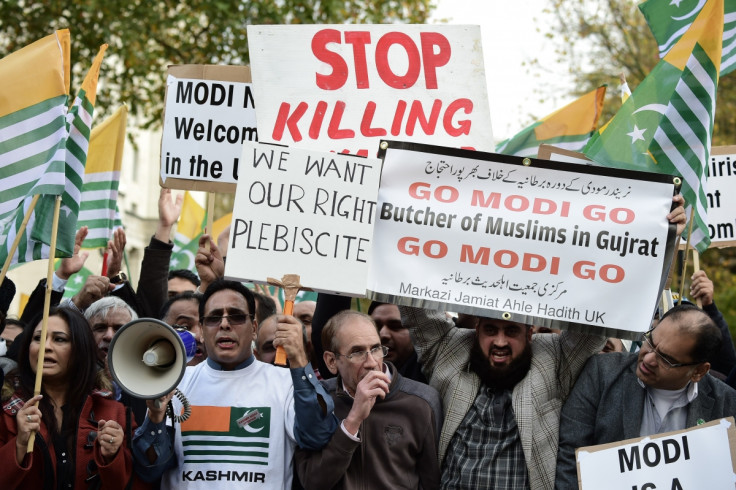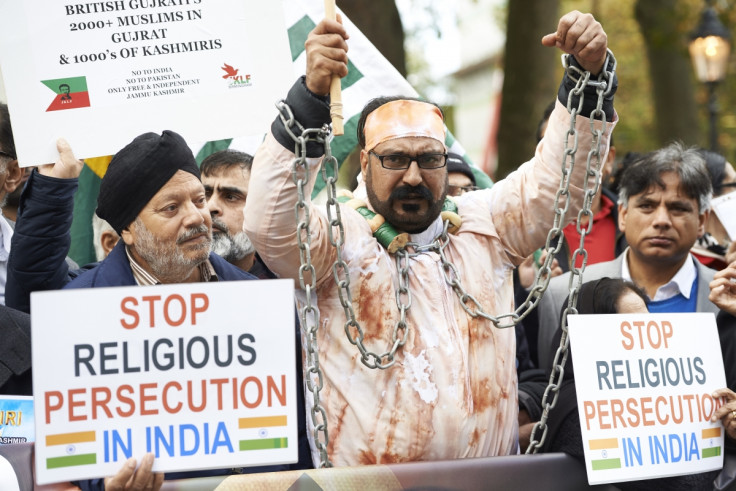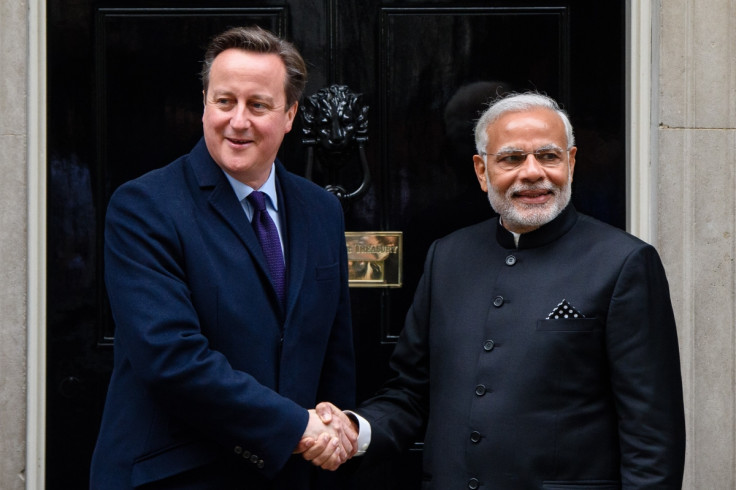Modi Not Welcome protests: British-Indians say anti-Modi campaign was a 'game changer'

A number of British-Indians have hailed the "huge success" of the 'Modi Not Welcome' protests held during the Indian prime minister's visit to the UK from 12 to 14 November. Narendra Modi's trip resulted in £9bn ($13.7bn) of trade deals between the UK and India. However, this was overshadowed by mass protests against the leader.
Hundreds of protesters gathered at 10 Downing Street on 12 November as Modi met with British counterpart David Cameron on the first day of his visit. The protests gained widespread media attention, conflicting with the "rock star" image the international community had associated with Modi.
"Our 'Modi Not Welcome' campaign was a game changer," said Suresh Grover, director of Awaaz Network, who facilitated the movement against Modi's visit. "The international community, both civil and the media, are beginning to separate the myth and reality around Mr Modi."
Until coverage of the 'Modi Not Welcome' campaign began, much of the media surrounding the Indian prime minister's visit had focused on the 'UK Welcomes Modi' group, who organised a large-scale welcome reception for Modi at Wembley Stadium. Nearly 60,000 British-Indians attended the event, where Modi addressed the diaspora. Anti-Modi campaigners have hailed the fact that their campaign diverted attention to those British-Indians who do not support the prime minister.

The protest attracted hundreds of people, with some groups estimating up to 3,000 protesters in attendance, including Sikhs, Muslims, Nepalese, Kashmiris, and women's rights organisations. London mayoral candidate George Galloway was also present among the protesters and spoke out against Cameron's welcome of Modi, who has been accused of failing to address "growing intolerance and violence" in India.
"Our demonstration busted the myth of NRI [non-resident Indian] adulation for Modi and showed the very diverse range of groups who are angry about his policies," said Amrit Wilson from the South Asia Solidarity Group. "It strengthened the campaign against Modi and against Hindutva organisations and their supporters in Britain. There is a definite change in approach to Modi from a wide range of people, from parliamentarians to trade unionists, women's organisations and so on."
Activists have vowed to continue their campaign to "demystify the image maker, the background and the spin" surrounding Modi in the west. The Sikh Federation UK, who were at the forefront of the protests, promised that as long as Modi did not address Sikh issues appropriately, the Indian PM would continue to face opposition, including in Paris during the UN Climate Summit at the end of November.

The Awaaz Network and their allies were also responsible for projecting a 'Modi Not Welcome' sign onto the Houses of Parliament on 8 November. The move gained widespread media attention and established Awaaz as the leading campaign group against the Indian prime minister in the UK. British Sikhs also staged a 'Sikh Lives Matter' protest outside the Indian embassy in Central London to highlight what they believe is growing intolerance towards Sikhs in India.
"Modi is double-faced when it comes to Sikhs," said Gurjeet Singh, national press secretary of the Sikh Federation UK. "Modi, through his national security adviser and pro-Modi Indian media, made a big play on discrediting British Sikhs and defaming Sikh Gurudwaras, Sikh TV channels and Sikh organisations. We will be leading the political challenge to this by approaching the Home Office and Foreign Office for a meeting."
Singh said that they have raised concerns over Modi's treatment of the Sikh community with the All Party Parliamentary Group for UK Sikhs. They also claim to have met with lawyers, including a High Court judge, and are considering taking legal action on behalf of the Sikh groups who they believe were wrongly defamed by Modi.
© Copyright IBTimes 2024. All rights reserved.






